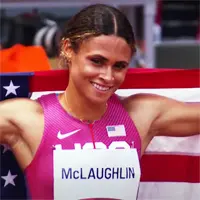NBC's Summer Olympics coverage has been a worldwide effort, from Tokyo to London to Connecticut
-

The pandemic upended how NBC produces televises the Olympics. Instead of deploying a full crew in Tokyo, NBC Sports shifted its production across facilities around the world. “This is the first year where our footprint here has eclipsed our footprint in-country,” says NBC Sports vice president of engineering Tim Canary, who's been working out of NBC's facility in Stamford, Connecticut. The International Broadcast Center in Tokyo and NBC Sports’ Stamford headquarters were the main hubs, but NBC has also used NBC headquarters in New York City's Rockefeller Plaza, CNBC’s headquarters in Englewood Cliffs, New Jersey, and Telemundo’s facility in Miami, as well as Comcast-owned Sky in London. In fact, all of NBC's indoor volleyball coverage originates in London. The lack of friends and family in Tokyo has also led NBC Sports to deploy a “Friends and Family” strategy of trying to bring the celebrations that are happening in homes and hometowns around the country to viewers at home, such as the viral video of Olympic swimmer Lydia Jacoby's friends and family's reaction in Alaska to her surprise gold win. “We’ve been working on this for months, even before the news was announced that international fans would not be allowed to travel to Tokyo,” said NBC Olympics primetime producer Rob Hyland. “It’s a pretty elaborate plan… It has its own production wing, and the umbrella continues to get bigger and bigger.” Meanwhile, NBC Sports set up a production facility in the ballroom of the downtown Marriott Hotel in Stamford to keep "shot pickers" -- the employees who find Olympic highlights -- socially distant from each other. “We have replay people at home, we have graphics people here for Sunday Night Football. That was not possible in the past,” says Canary. “A lot of things that we could do, that maybe shows were resistant to do, we had to do during COVID, because we couldn’t put people in trucks, we couldn’t put them in the field.”
ALSO:
- NBC's Olympics coverage has been a user experience nightmare: "In the United States, watching the Games this year has been a logistical nightmare," says Mark Wilson. "The difficultly in figuring out which events are happening when, and how to watch them, undermines the 7,000 hours of otherwise carefully planned competition. America’s roughly 13-hour time difference with Tokyo doesn’t help. But the problems are exacerbated by a complicated circle of broadcast rights, coupled with a strange combination of real-time coverage, prime-time replays, and sports streamed across a handful of different services. We live in an age when one can find any childhood TV show to stream in seconds. You can have any food fetish delivered to your door in an hour. But if you want to see the 100-meter women’s hurdles finals before the results are in your news feed? Good luck. The capabilities that technology affords broadcasters were supposed to make our lives easier. Instead, they’ve made them harder—at least during this year’s Games...One problem is that in the U.S., broadcast rights belong to NBCUniversal exclusively. NBC is a TV channel, yes, but it’s also a series of cable networks, the NBC Sports App, NBC’s Tokyo 2020 Olympics App for TV, and the Peacock streaming app. During the Olympics, it’s also a streaming website. NBCUniversal, like all other big media companies, knows that streaming is the future (streaming currently accounts for a third of all TV time, but Nielsen says that figure is growing quickly), and so it needs to build out platforms like Peacock to survive in that future. To get consumers using more of these services, NBC has sliced and diced Olympics coverage across all of its platforms. For instance, you can watch the full women’s gymnastics events only on Peacock. And if you plan to watch any sport in 4K? Just cross your fingers. Streaming full-length Olympic replays sounds like it’s a perfect solution to having so many sports across so many platforms, but these streams are tightly controlled by ad dollars. Some are presented in six-hour-long chunks, preventing you from fast-forwarding (lest you skip a commercial), meaning that if you wanted to see something at hour five of the stream, you need to stream five literal hours to get there. Is this just the way of the modern world? No. The rest of the globe doesn’t live this way because NBCUniversal doesn’t control the Olympics broadcast worldwide."
- Amber Ruffin's goal covering her first Olympics is to exude positivity: “The interviewers ask stressful questions like, ‘Do you know that everyone’s counting on you?’” says Ruffin in a gruff voice in one video, wagging her finger at the camera. Ruffin, in contrast, has a slightly lighter note. “Question No. 1: Do you know you did an amazing job?” she asked athletes such as Sarah Sponcil and Kelly Cales, two U.S. beach volleyball players, as they left competition venues.
- How Nastia Liukin helped viewers, and NBC, navigate Simone Biles’ absence
TOPICS: Summer Olympics, NBC, Peacock, Amber Ruffin, Nastia Liukin, Rob Hyland, Simone Biles, Tim Canary, Coronavirus, NBC Sports, NBC Universal
